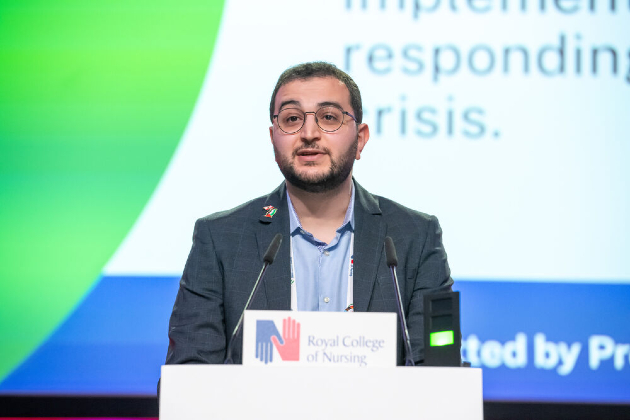News
Using nursing students to plug NHS staff shortages must end now
We’re calling on the government for better support for students, including universal maintenance grants that account for cost-of-living pressures and a loan forgiveness model

Connect with us:
The practice of using nursing students to make up staff gaps while on clinical placements must end, the RCN has told the UK government. We’ve written to the secretaries of state for health and education to call for the misuse of students’ supernumerary – or additional – status to be eradicated. We’ve also asked for better financial support for students and loan forgiveness to encourage recruitment.
We’re warning that the practice of relying on students to take on significant responsibilities, when they should be observing on clinical placements, is having a serious impact on their mental and physical health. This means they are also feeling unsafe and insufficiently supervised.
RCN General Secretary and Chief Executive Professor Nicola Ranger said: “Nursing is an amazing career, but the goodwill of our future nurses is being taken for granted. Students are routinely reporting that their learning is being compromised.”
Pre-registration students are required to complete 2,300 hours of clinical placements where they’re considered to be supernumerary, meaning they’re not counted as part of rostered staffing and are supervised by a registered nurse.
Nursing and Midwifery Council (NMC) standards say that students must not be counted as part of the staffing required for safe and effective care, making the practice a clear violation of the regulator.
Nicola said: “Students on placement should be observing complex skills from registered professionals and exposed to a range of situations which prepare them for life on the job. It’s unacceptable that those same students not only have their education opportunities diminished but are also being used to prop up understaffed wards following years of underinvestment in the nursing profession.”
The academic requirements and amount of time spent on unpaid clinical placements, combined with the low level of financial support provided to them during their studies, is forcing students to work multiple jobs on top of their degrees.
Students report working dangerous 60-hour weeks, being driven into personal debt, reliant on university hardship funds, questioning their future in the profession and feeling isolated and burnt out.
We’re calling for better financial support for nursing students, including universal maintenance grants in England that take into account cost of living pressures, and forgiving student debt for those who commit to working in the health and care system after graduation.
Currently, financial support is not enough to cover rent, utility bills, travel costs and expenses, which are essential to undertaking a nursing degree.
Nicola added: “We cannot have a situation where nursing students are burnt out before they have even qualified. We need a new deal for nursing students which includes a proper solution to the staffing crisis in the NHS, the driving force behind so many students being taken advantage of.
“We need the introduction of universal maintenance grants that recognise student nurses’ unique situation, and a loan forgiveness model for those who commit to working in the public sector.”
This coming week, hundreds of students will meet to discuss the state of nurse education at our annual Congress in Liverpool, where they are expected to raise experiences of severe hardship because of a system that doesn’t work for them or attract and keep the nurses of the future.











